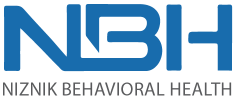Borderline personality disorder (BPD) is the most common personality disorder in America, with more than 5 million people diagnosed with the disorder. The actual number may be at least twice that, many experts believe, due to misdiagnosed or undiagnosed cases.
When someone suffers from BPD, they often find it difficult to control their emotions, especially in reaction to a stressful or traumatic event. When the crisis has passed, they may struggle to regain a sense of normality and calm. They are unable to regulate their emotions and return to a stable frame of mind.
Because of this, people with BPD often have low self-esteem and they are likely to engage in impulsive actions, self-harm, and other risky, dangerous behaviors. Their personal relationships are intense and unstable. They may idealize a friend or loved one in one moment, then suddenly shift to believing that person is no longer someone they care about, or that the person no longer cares about them.
Other signs and symptoms of someone with BPD may include:
- Risky and impulsive behavior: Binge eating, going on spending or gambling sprees, quitting a good job for no reason, or sabotaging a healthy, successful relationship are all signs of BPD.
- Threats of suicide or self-harm: People with BPD often exhibit dangerous behavior such as cutting themselves, especially when they believe they are being ignored or rejected by someone they care about.
- Intense or uncontrollable anger: Engaging in inappropriate arguments or losing their temper is a common sign of BPD. Some people go so far as to getting into physical fights or being verbally abusive with others.
- Changing self-image: If someone is constantly resetting their values and goals as their opinion of themselves fluctuates from good to bad and back again, they may have BPD.
- Intense fear of abandonment: People suffering from BPD will take drastic measures to avoid feeling separated or rejected by friends or family – whether it is real or imagined.
What causes borderline personality disorder?
The Mayo Clinic cites several factors that may contribute to borderline personality disorder:
- Hereditary factors: Close family members, such as siblings or parents and children, often share a risk of the disorder.
- Dysfunctional family environment: Sexual, physical, or emotional abuse may trigger BPD. Children who feel abandoned or neglected at a young age are at high risk of developing the disorder as they grow older.
- Brain chemistry: BPD may be caused by imbalances in naturally produced chemicals in the brain that affect the way you behave and think.
Treatment for borderline personality disorder
Psychotherapy, group and individual therapy, peer and family support, and in some cases medication are all part of an effective treatment plan for borderline personality disorder. Dialectical behavioral therapy and cognitive behavioral are often used to help someone with BPD learn how to cope with emotional upheaval that can trigger episodes. Dialectical behavioral therapy, especially, stresses the importance remaining mindful of controlling your emotions without resorting to self-harming behavior – and without using drugs or alcohol.
Medications can help, too. Mood stabilizers and antidepressants have been proven effective in helping to control mood swings and dysphoria. Antipsychotic medications are also used to help control disorganized thinking and other symptoms of BPD.




